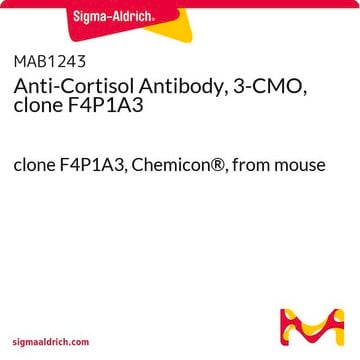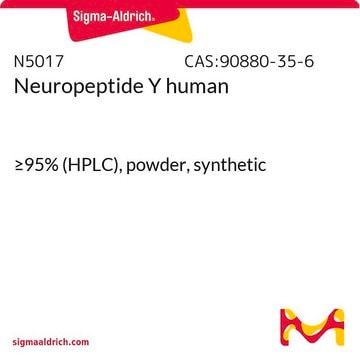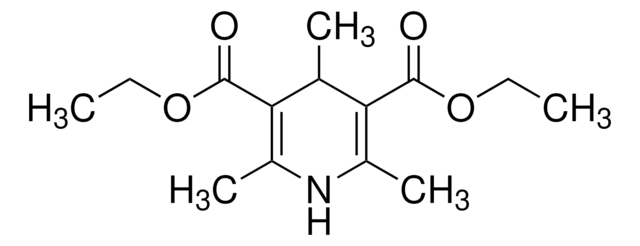Recommended Products
biological source
sheep
Quality Level
antibody form
serum
antibody product type
primary antibodies
clone
polyclonal
species reactivity
rat, human
manufacturer/tradename
Chemicon®
technique(s)
ELISA: suitable
radioimmunoassay: suitable
shipped in
wet ice
target post-translational modification
unmodified
Related Categories
Specificity
Corticosterone
Cross-reactivity: 11-dehydrocorticosterone 0.67%, Deoxycorticosterone 1.5%, 18-OH-DOC <0.01%, Cortisone <0.01%, Cortisol <0.01% and Aldosterone 0.2% by RIA.
Cross-reactivity: 11-dehydrocorticosterone 0.35%, Progesterone 0.004%, 18-OH-DOC 0.01%, Cortisol 0.12%, 18-OH-B 0.02% and Aldosterone 0.06% by ELISA.
Cross-reactivity: 11-dehydrocorticosterone 0.67%, Deoxycorticosterone 1.5%, 18-OH-DOC <0.01%, Cortisone <0.01%, Cortisol <0.01% and Aldosterone 0.2% by RIA.
Cross-reactivity: 11-dehydrocorticosterone 0.35%, Progesterone 0.004%, 18-OH-DOC 0.01%, Cortisol 0.12%, 18-OH-B 0.02% and Aldosterone 0.06% by ELISA.
Immunogen
Corticosterone-3-cmo-urease
Application
Anti-Corticosterone Antibody is an antibody against Corticosterone for use in ELISA, RIA.
ELISA: 1:200,000 (Sensitivity 5 pg/well, id-50 is 50 pg/well.)
RIA: 1:60,000 (Sensitivity 10 pg/tube, 50% displacement 60 pg/tube separating free and bound using ammonium sulfate 10 50% saturation.)
Optimal working dilutions must be determined by end user.
RIA: 1:60,000 (Sensitivity 10 pg/tube, 50% displacement 60 pg/tube separating free and bound using ammonium sulfate 10 50% saturation.)
Optimal working dilutions must be determined by end user.
Research Category
Metabolism
Metabolism
Research Sub Category
Metabolic Hormones & Receptors
Metabolic Hormones & Receptors
Physical form
Sheep serum. Liquid in 0.1% sodium azide.
Storage and Stability
Maintain refrigerated at 2-8°C in undiluted aliquots for up to 6 months.
Legal Information
CHEMICON is a registered trademark of Merck KGaA, Darmstadt, Germany
Disclaimer
Unless otherwise stated in our catalog or other company documentation accompanying the product(s), our products are intended for research use only and are not to be used for any other purpose, which includes but is not limited to, unauthorized commercial uses, in vitro diagnostic uses, ex vivo or in vivo therapeutic uses or any type of consumption or application to humans or animals.
Not finding the right product?
Try our Product Selector Tool.
Storage Class Code
10 - Combustible liquids
WGK
WGK 1
Certificates of Analysis (COA)
Search for Certificates of Analysis (COA) by entering the products Lot/Batch Number. Lot and Batch Numbers can be found on a product’s label following the words ‘Lot’ or ‘Batch’.
Already Own This Product?
Find documentation for the products that you have recently purchased in the Document Library.
Tanja Hofmann et al.
Poultry science, 100(8), 101243-101243 (2021-06-28)
Already during early life, chickens need to cope with chronic stressors that can impair their health and welfare, with stocking density being one of the most influential factors. Nevertheless, there is a gap in research on the influence of stocking
Sex Differences in Serotonin 5-HT 1A Receptor Responses to Repeated Restraint Stress in Adult Male and Female Rats.
Philippe, et al.
The International Journal of Neuropsychopharmacology, 25, 863-876 (2022)
Jose Gulfo et al.
PloS one, 11(1), e0146497-e0146497 (2016-01-08)
Corticosteroid-binding globulin (CBG) is the specific plasma transport glycoprotein for glucocorticoids. Circulating CBG is mainly synthesized in liver but, its synthesis has been located also in other organs as placenta, kidney and adipose tissue with unknown role. Using an experimental
José Gulfo et al.
Scientific reports, 9(1), 14018-14018 (2019-10-02)
Corticosteroid-binding globulin (CBG) is synthesized by the liver and secreted into the bloodstream where binds to glucocorticoids. Thus CBG has the role of glucocorticoid transport and free hormone control. In addition, CBG has been detected in some extrahepatic tissues without
Sonja Schmucker et al.
Poultry science, 100(11), 101408-101408 (2021-09-17)
During life, the number and function of immune cells change with potential consequences for immunocompetence of an organism. In laying hens, studies have primarily focused on early development of immune competence and only few have investigated systemic and lymphatic distribution
Our team of scientists has experience in all areas of research including Life Science, Material Science, Chemical Synthesis, Chromatography, Analytical and many others.
Contact Technical Service






